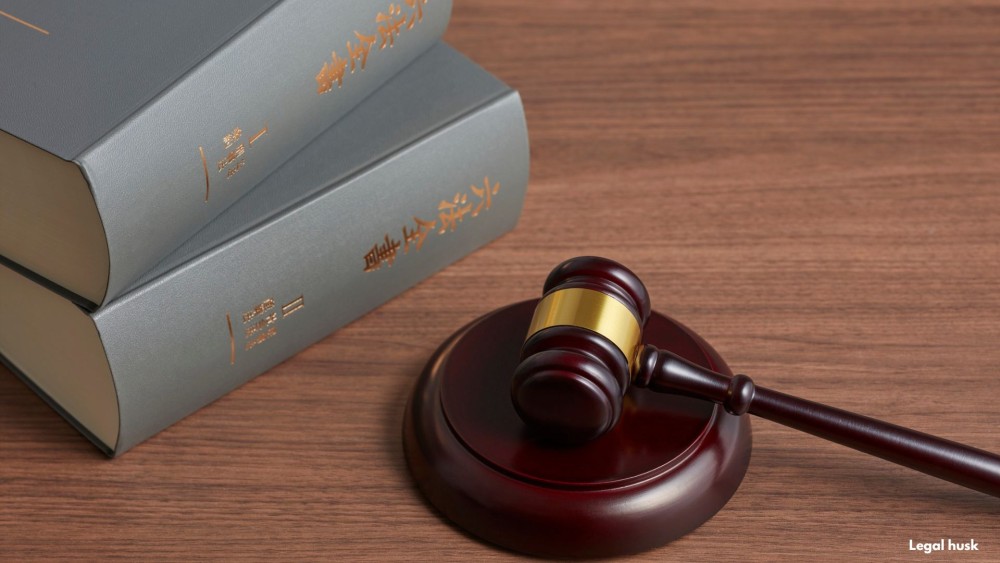Get Your Legal Documents Now!
Whether you are dealing with a complex family matter, facing criminal charges, or navigating the intricacies of business law, our mission is to provide you with comprehensive, compassionate, and expert legal guidance.

Lost in legal lingo? Not anymore. Unlock the meaning behind key civil complaint terms and talk the talk in court. With this quick legal vocab boost, you’ll navigate litigation like a pro.
Civil complaints mark the beginning of legal disputes in court, and understanding the legal terminology used in these documents is crucial. Whether you are a plaintiff, defendant, or legal professional, a clear grasp of legal jargon ensures better navigation of the litigation process. This guide breaks down essential legal terms used in civil complaints and explains their significance.
Key Legal Terms in Civil Complaints
1. Plaintiff
The plaintiff is the individual or entity that initiates the lawsuit by filing a complaint. They claim to have suffered harm due to the actions or negligence of the defendant and seek legal relief.
2. Defendant
The defendant is the person or entity being sued in a civil lawsuit. The complaint outlines allegations against the defendant and the relief sought by the plaintiff.
3. Complaint
A complaint is the legal document filed by the plaintiff to initiate the lawsuit. It outlines the legal claims, factual background, jurisdictional basis, and damages sought.
4. Cause of Action
A cause of action refers to the specific legal basis on which the plaintiff is suing the defendant. Common causes of action include negligence, breach of contract, and fraud.
5. Jurisdiction
Jurisdiction refers to the court's authority to hear a case. It is classified into:
6. Summons
A summons is a formal notice issued by the court informing the defendant of the lawsuit and requiring them to respond within a specified period.
7. Service of Process
Service of process is the procedure of formally delivering legal documents (such as the complaint and summons) to the defendant to notify them of the lawsuit.
8. Answer
An answer is the defendant’s formal response to the complaint. It addresses the allegations made by the plaintiff and may include defenses or counterclaims.
9. Motion to Dismiss
A motion to dismiss is a legal request made by the defendant to terminate the case before trial, often on the grounds of lack of jurisdiction, failure to state a claim, or procedural issues.
10. Affirmative Defense
An affirmative defense is a legal argument presented by the defendant, admitting to the allegations but providing a justification that negates liability, such as self-defense or statute of limitations.
11. Damages
Damages refer to the monetary compensation sought by the plaintiff. They include:
12. Injunction
An injunction is a court order requiring the defendant to do or refrain from doing a specific action. It is often requested when monetary damages are insufficient to remedy the harm.
13. Default Judgment
A default judgment is a ruling in favor of the plaintiff when the defendant fails to respond to the complaint within the stipulated time.
14. Counterclaim
A counterclaim is a claim made by the defendant against the plaintiff, asserting that the plaintiff has caused them harm and seeking legal relief in return.
15. Amended Complaint
An amended complaint is a revised version of the original complaint, often filed to correct errors, add new claims, or include additional parties.
16. Discovery
Discovery is the pre-trial phase where both parties exchange evidence and gather information through depositions, interrogatories, and document requests.
17. Deposition
A deposition is an out-of-court testimony given under oath, where attorneys question witnesses and record their statements for use in trial or settlement discussions.
18. Interrogatories
Interrogatories are written questions submitted by one party to the opposing party, requiring written responses under oath.
19. Motion for Summary Judgment
A motion for summary judgment is a request made by either party, arguing that there are no material facts in dispute and the case should be decided in their favor without going to trial.
20. Pretrial Conference
A pretrial conference is a meeting between the judge and attorneys to discuss case progress, possible settlements, and procedural matters before trial.
21. Settlement
A settlement is an agreement between the plaintiff and defendant to resolve the case without going to trial. It usually involves financial compensation or other agreed-upon remedies.
22. Verdict
A verdict is the final decision made by a judge or jury determining the outcome of the case.
23. Appeal
An appeal is a legal process where the losing party requests a higher court to review and overturn the lower court’s decision due to legal errors.
Why Understanding Legal Terminology Matters
Legal terminology can be complex, but a strong understanding of these terms benefits both plaintiffs and defendants by:
How Legal Husk Can Help You Get Your Complaint Right from the Start
At Legal Husk, we know that a well-crafted complaint sets the tone for a successful litigation strategy. Whether you're an attorney or representing yourself (pro se), we help ensure your complaint is:
✅ Clear, concise, and aligned with legal standards
✅ Properly formatted and supported by necessary facts and exhibits
✅ Filed on time and in the correct court
✅ Structured to avoid early dismissals and procedural pitfalls
We also assist with:
📝 Amending complaints when needed
🧾 Responding to motions to dismiss
📅 Building a case timeline that keeps you on track through discovery and beyond
📌 Let’s build your case on a solid foundation.
Visit:
legalhusk.com
legalhusk.com/services
legalhusk.com/services/civil-litigation
legalhusk.com/about-us
Need Legal Guidance? We’re Here to Help!
Navigating civil litigation can be daunting, but understanding legal terminology empowers you to make informed decisions. If you need assistance with your case or have legal questions, Legal Husk is ready to support you.
Whether you are dealing with a complex family matter, facing criminal charges, or navigating the intricacies of business law, our mission is to provide you with comprehensive, compassionate, and expert legal guidance.
Comments